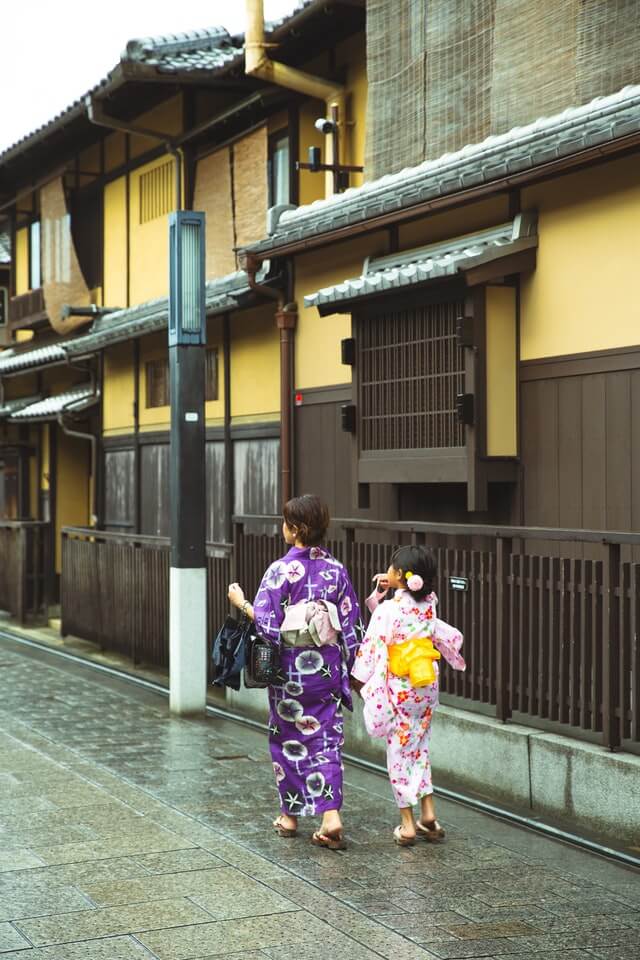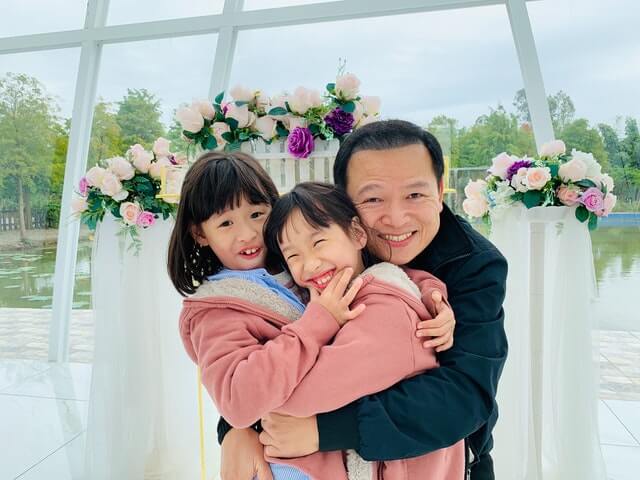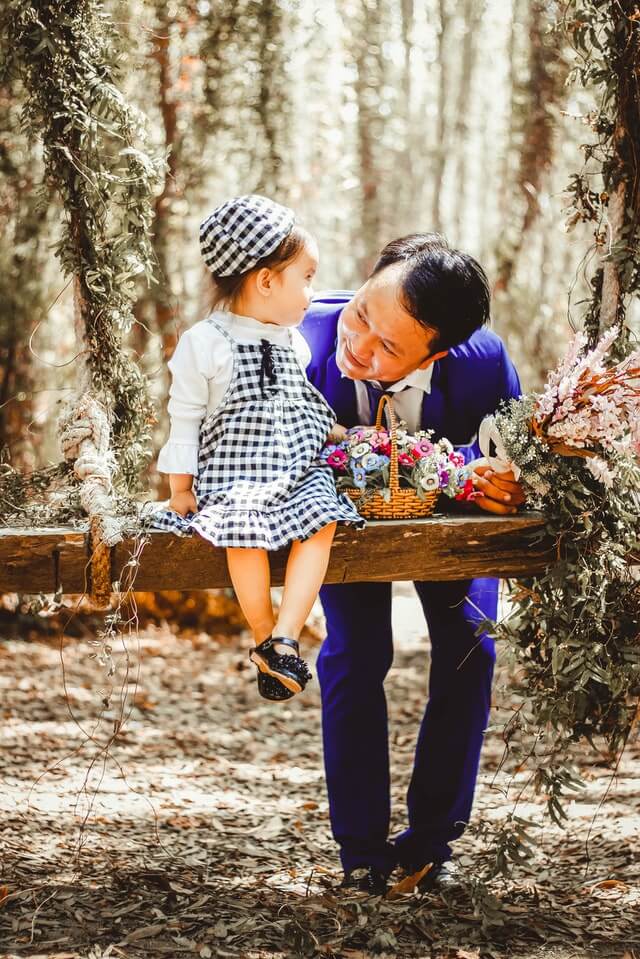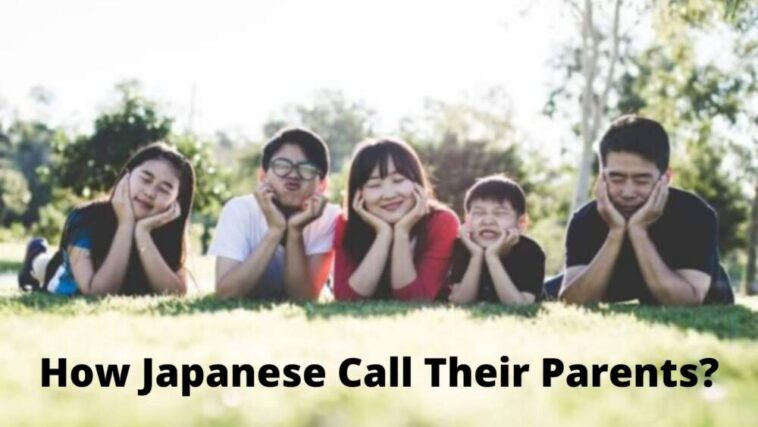Wondering how Japanese call their parents? Check out a list of words that kids use for their father and mother in everyday lives. Read further to know more.
Addressing parents in Japan goes beyond simple titles. It’s a fascinating glimpse into Japanese culture, where respect and hierarchy deeply influence family dynamics. From formal honorifics to playful nicknames, discover the diverse ways Japanese children call their parents. Get ready to delve into a world of “Otōsan,” “Okāsan,” and beyond!
Page Contents
what do japanese kids call their parents?
Japanese children typically address their parents using honorific titles. “Otōsan” (お父さん) for father and “Okāsan” (お母さん) for mother are the most common and respectful terms. These titles literally translate to “respected father” and “respected mother”, reflecting the emphasis on respect and hierarchy in Japanese culture. Some families also use more informal terms like “Papa” (パパ) and “Mama” (ママ), especially with younger children.
Okāsan For Mother

Okaasan is the most common way of calling a mother in Japan. The kanji character of Okaasan is 母, and Okasaan’s meaning is nursing mother.

It’s for referring to mama in Japanese word, used by common people. Okasaan is the Japanese hiragana word. Okasaan is how I address my mother as it’s extremely respectful to use that for mother in Japanese.
There are two ways in which the word ‘Okaasan’ can be used:
- When you are talking to your own mother, or when you are referring to her.
- When you are talking about somebody else’s mother.
There are some children who, instead of saying Okaasan, say Okaachan. There are also many who only say kaasan. That’s how Japanese call their parents.
Here are some examples of how Japanese call their parents (mother):
- Mom! Do you know where my shoes are? –
お母さん!俺の靴はどこにあるか知ってる? (Okaasan! Ore no kutsu wa doko ni aru ka shitteru?)
- How’s your mother doing? –
あなたのお母さん、元気にしてる? (Anata no okaasan, genki ni shiteru?)
Japanese Children Also Call Their Mums ‘Haha’
No, this is not the laughing sound. It is, in fact, a very humble and respectful way to call your mother in Japanese.
This is the word that is used when you are talking about your mother to others, who do not belong to your family. I often use Haha for my friend’s mother.
It is used in a formal situation. Since this is a humble word for mother, it is quite rude to call somebody else’s mother ‘haha’. You must only use this word when you are talking about your own mother.
Here is an example of how Japanese call their parents (mother):
- My mother enjoys cooking Japanese food. –
私の母は和食を作るのが好きです。 (Watashi no haha wa washoku o tsukuru no ga suki desu.)
Mama
This is a word that is most known to everyone around the world. ‘Mama’ is a word that is used by little Japanese children to call their mother. It is the same as the western word for mother – mommy.
Mama may also be used by adults when they are showing endearment to their mothers. Mama, however, sounds very childish and so, you should refrain from using this term when you are in the company of adults.
Here is an example of how Japanese call their parents (mother):
- Mommy, I want ice cream! –
ママ、アイス食べたい! (Mama, aisu tabetai!)

Okan
Okan is a pet name that is used for mothers by the Japanese. In English, the pet names for mother include mom, mama, or mommy.
Okan is quite similar to them. This is a term that is most commonly used by students of middle and high school. Adults normally do not use this term when talking in public or formal settings.
Here is an example of how Japanese call their parents (mother):
- My mama made beef stew last night; it was awesome! –
俺のおかんが昨日、ビーフシチューを作ってくれた。最高だった! (Ore no okan ga kinou, biifu shichuu o tsukutte kureta. Saikou datta!)
That’s how Japanese call their mother. Now let’s move on to the next part of how Japanese call their parents, i.e, their father.
Otōsan For Father
Otousan is the most general way of saying father. This is a term that you use when you talk about someone else’s father.
There are also many people in Japan who call their parents ‘Otousan’. You can also call your better half’s father Otousan.
Adults may also use this word when they are talking to young children about their fathers. For instance, a teacher may refer to his or her student’s father as Otousan.
To add a formal touch to the term when you are speaking in a formal setting, you may want to replace san with sama. So, instead of saying Otousan, you should say Otousama.
Otouchan is yet another way of referring to your father. It is the Japanese equivalent of the word daddy. This is a term that is very popular amongst younger children.
Here are some examples of how Japanese call their parents (father):
- Dad! It’s time for breakfast! –
お父ちゃん! 朝ごはんできたよ! (Otou-chan! Asagohan dekita yo!)
- Did your dad take this picture, Tasuke? –
太助君、この写真はお父さんが撮ったの? (Tasuke-kun, kono shashin wa otousan ga totta no?)
Japanese Children Also Use Chichi To Address Their Dads
This is a general term that is used to call your father. You must use this term only to talk about your own father in front of others.
However, this is just a term, not a title. Never directly call your father chichi. Only use this term when you are talking to others.

Here are some examples of how Japanese call their parents (father):
- My father doesn’t like pickles. –
父は漬物が苦手なんです。 (Chichi wa tsukemono ga nigate nan desu.)
- My father passed away 2 years ago. –
父は2年前に亡くなりました。(Chichi wa ni nen mae ni naku narimashita.)
- I learned how to play Shougi from my father. –
将棋は父から教わりました。(Shougi wa chichi kara osowarimashita.)
Chichi-Oya
This is a general term that is used in Japan to refer to all fathers. This is a general term that is used for all fathers in general, and not just specifically for your own father. Here’s how to say my father in a Japanese word: Chichi-Oya.
You must also not use this term when referring to somebody else’s father. This sounds very cold, rude, and impolite.
This is not the term that you would like to use when trying to be disrespectful.
Here are some examples of how Japanese call their parents (father):
- Fathers like receiving beer for Father’s Day. –
父親は父の日に、ビールが欲しいと言われています。 (Chichi-oya wa chichi no hi ni, biiru ga hoshii to iwarete imasu.)
- Fatherless households. –
父親のいない家庭 (Chichi oya no inai katei.)
- I have a younger sister with a different father. –
私には父親の違う妹がいます。(Watashi niwa chichi oya no chigau imouto ga imasu.)
Oyaji
Oyaji is a warm but informal way to say father. This is equivalent to the English term ‘my old man’. You can use this term in a casual setting. You can use this term when you are referring to your dad lovingly to someone else.
Some people call their fathers Oyaji.

Here are some examples of how Japanese call their parents (father):
- My old man is a weirdo! –
うちの親父は変わっている人だよ! (Uchi no oya-ji wa kawatteiru hito da yo!)
- I’m going to make some ramen. Would you like some, dad? –
ラーメン作るけど、親父も食べる?(Ramen tsukuru kedo oyaji mo taberu?)
- Dad, you have a call from Mr. Tanaka. –
親父、田中さんから電話だよ。(Oyaji, Tanaka san kara denwa dayo.)
- Who is that old guy over there? –
あそこの親父は誰? (Asoko no oyaji wa dare?)
Papa
This is a term that has been borrowed from the English language and is quite a common way in which young children call their father.
This is a term that is similar to the term ‘daddy’ in the west. It is a very cute term for father. However, it is not used in polite company.
Here is an example of how Japanese call their parents (father):
- Daddy, pick me up! –
パパ、抱っこして! (Papa, dakko shite!)
Oton
This is a term that is most commonly used in the Kansai region of Japan. This is a casual term that also sounds quite fun. It is a word that you most commonly use when you are in the company of friends and family.
Here is an example of how Japanese call their parents (father)::
- Pa, do you want some takoyaki? –
な、おとん。たこ焼き食べへんか? (Na, oton. Takoyaki tabehen ka?)
Chichi-Ue
Chichi-Ue is pretty much like Chichi but in an honorable way. It’s an old way of addressing fathers. People from Samurai families and noble families would use Chichi-Ue to address their father.
This word is not used in everyday conversations however, you might read about it in literature books, or in media. The suffix “ue” is added as respect, just like -san in most cases. I call my father Chichi-Ue just for fun to sound more dramatic at times.
Here is an example:
Chichi-Ue, ogenkidesuka? (How are you doing, father?)
What do Japanese call their friends parents?
Japanese call their friend’s mother as Oba-san and their father as “Ojisan” . Oba-san and Ojisan are common names that can be used for any mature female or male respectively.
Does Kaachan mean mom?
Yes, Kaachan means mom. It’s just an informal way of addressing a mother with the suffix -chan. The formal way of addressing mother is Oka-san.
What’s the Japanese word for parents?
The Japanese words for parent’s is quite simple. It’s Oya and can be used to refer to both parents. That’s how Japanese call their parents.
What do Japanese kids call their parents?
The Japanese call their parents, mom and dad with different words like Okan, Haha, Mama, Haha Oya for mum and Otousan, Chichi, Papa, and Oton for father. The most common words for Japanese mom and dad are Okan and Otousan.
What do you call your mom in Japanese?
Mama, Okan, Haha, Ofukuro, Haha Oya are some of the words to refer to mom in Japanese. A few uncommon words to use for mother in Japanese are Haha Ue and Gobdou-sama.
How to call father in Japanese?
You can use terms like Oton, Otousan, Chichi, Papa, Chichi-Oya to address your father in Japanese. The most common term to refer to dad in Japanese is Oton and Otousan.
Mama or Papa: The Japanese Way
Most of us have grown by only using one term each for our mothers and fathers. Mom and dad are the most common terms used all across the planet. But, I hope you got a good insight on how Japanese call their parents.
However, the situation varies a lot in Japan. Here, there are so many different ways of how japanese call their parents .
Usage of each of these terms depends on the situation you are in and the company you have. I hope you found this guide informative and now are acquainted with all the ways of how Japanese call their parents.
Also Read:





